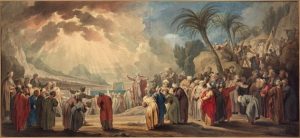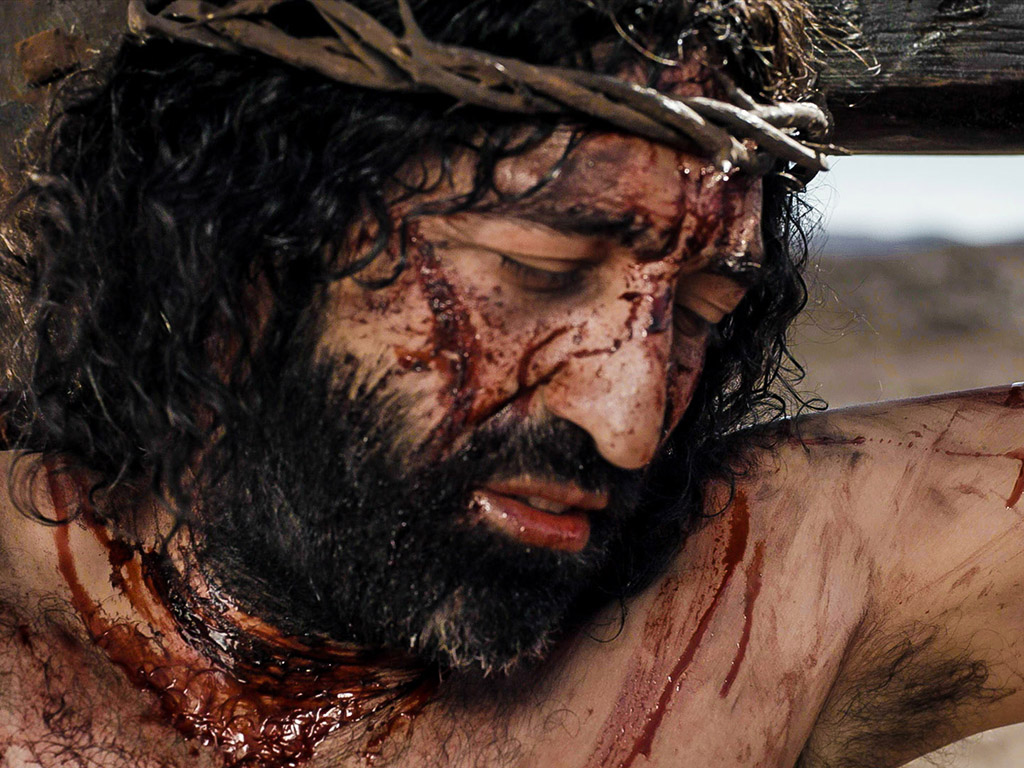Je ne connais pas de Chrétiens – et même bien d’autres personnes – qui ne désirent pas… voir Dieu!
Le Créateur, l’Infiniment Grand et Tout-Puissant, celui qui est considéré comme L’Être suprême.
En général, les gens qui reconnaissent son existence voudraient bien le voir, ou du moins entendre sa voix.
Étrangement, le texte de la 1ère lecture de ce dimanche nous présente une attitude tout à fait opposée (Dt.18:15-20).
On y rencontre Moïse qui, parlant à son peuple, leur dit :
 « Au mont Horeb, le jour de l’assemblée, vous disiez :
« Au mont Horeb, le jour de l’assemblée, vous disiez :
“Je ne veux plus entendre la voix du Seigneur mon Dieu”. »
La raison est bien claire: le peuple de Dieu a peur de lui.
Ils ont fait l’expérience de manifestations naturelles telles que tonnerre, éclairs, tremblement de terre,
qu’ils ont interprétés comme des signes de la colère de Dieu.
Ils disent donc à Moïse:
« Je ne veux plus voir cette grande flamme,
je ne veux pas mourir ! »
Cet événement prend place plusieurs siècles avant la venue de Jésus sur notre terre.
Nous sommes encore bien loin de la révélation du Dieu-Père que fera Jésus.
Mais je me demande avec une certaine… inquiétude:
‘N’y a-t-il pas de nombreux chrétiens qui, eux aussi, ont peur de Dieu?’
Des croyants qui craignent Dieu le considérant comme lointain et facilement irritable?
Il semblerait que ces personnes croient leurs manquements – petits et grands –
plus grands que la miséricorde de Dieu…
Ce Dieu dont Jésus lui-même a affirmé:
 « Dieu a tellement aimé le monde qu’il a donné son Fils unique,
« Dieu a tellement aimé le monde qu’il a donné son Fils unique,
afin que quiconque croit en lui ne se perde pas, mais obtienne la vie éternelle.
Car Dieu a envoyé son Fils dans le monde, non pas pour juger le monde,
mais pour que, par lui, le monde soit sauvé. » (Jn.3:16-17)
Y croyons-nous vraiment?
Ou, évoluons-nous encore dans l’univers du temps de Moïse?
Note: Une autre réflexion sur un thème différent est disponible en anglais à: https://image-i-nations.com/4th-sunday-of-year-b-2021/
 Good Friday is not the glorification of suffering, it is the exaltation of love –
Good Friday is not the glorification of suffering, it is the exaltation of love –